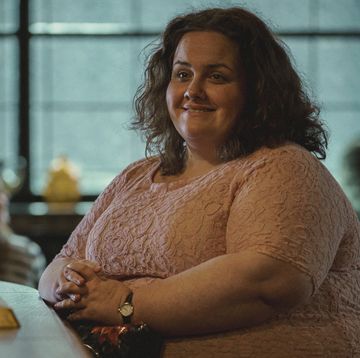Coming out is a landmark in many LGBTQ peoples lives. I’ve done it twice!
I vividly remember when I told my mum I was gay. It was the night of my sisters 18th birthday party. After several ‘snakebites’ I told many of her friends about the wild nights I’d spent in London at gay clubs Popstars and Heaven and how Soho felt like the exciting glittering mecca I’d been searching for all my life.
I was 20 and had been living in London for 2 years, keeping my flamboyant antics quite hidden from my family. Fearing my drunk confessionals would spread like wildfire through the village, I decided I should tell my mum. Sucking heavily on a Marlborough light and visibly shaking I said, ‘Mum, I’ve got something to tell you’… ‘I’m gay!’. Three years later my sister came out as a lesbian and in 2012 I came out again as transgender.
LGBTQ (lesbian, gay, bisexual, trans, queer or questioning) people who have already revealed or no longer conceal their sexual orientation and/or gender identity are ‘out’.
This week we heard that film director Lily Wachowski came out as a transgender woman. Lily has a transgender sister called Lana. The siblings are widely known for directing the Matrix trilogy. Lana voluntarily ‘came out’ as transgender in 2012, but Lily announced a statement this week alleging pressure from online tabloids which forced her hand to ‘out’ herself earlier than she would of liked before they ran a story themselves.
Being ‘outed’ is the deliberate or accidental disclosure of an LGBTQ person's sexual orientation or gender identity, without their consent.
We’ve seen tabloids do this before. Back in 1961 the model April Ashley, who is thought to be one of Britain’s first transsexual women, was outed by the Sunday People newspaper with the headline, ‘’Her’ Secret is Out’. Immediately Ashley, who had been modelling for Vogue, was dropped by her agents and never modelled again. Her book ‘The First Lady’ reveals the negative effects this headline caused and how being ‘outed’ as a transsexual massively affected her public persona, which in turn led to unemployment and her personal relationships to disintegrate. Ashley, is one example of many trans people who have had this happen to them. It’s a far cry from Caitlyn Jenner’s very public voluntary coming out on the front of Vanity Fair magazine last year.
Its not just trans people who are effected by fear of being ‘outed’. In 1999 I remember when the former Boyzone member Stephen Gately was pressured into coming out as a gay man fearing that an associate of the group would ‘out’ him first. The story ran on the front page of The Sun newspaper. The pressure on Gately must have been extreme, fearing that revealing his true self in turn would loose the band fans, kill record sales and signal the end of his career. Likewise Dusty Springfield, Freddie Mercury, George Michael and Elton John were all encouraged to play it straight for fear of damaging their public persona.
We are not damaged people, nor should we be forced to live a lie. I have publicly ‘come out’ as a transgendered female. I did this because I was about to embark on a transition in which I would visibly change my appearance. Coming out to myself was accepting who I was after many years of feeling confused and uncomfortable in a male role. I also wanted my voice and experience to be included in the wider consciousness, partly raising the awareness of trans people and being visible as an equally accepted member of society.
I have yet to see a person stand on a chair and announce ‘I’m straight’ or ‘I’m cis-gendered’ because they don’t need to - we largely live in a world where heterosexuality and the gender binary is celebrated and considered the norm.
Identifying as queer is the rejection of these norms. It’s still illegal to be gay in 75 nations with some of those countries applying the death penalty if you’re found out. For some people 'coming out' is also, in part, a defiance against repression, which many people petitioned, marched, rioted and have died for.
I also know many LGBTQ people who haven’t come out publicly or to their families. These people aren’t celebrities, they’re my friends. For many the question is ‘Why?’ Who they choose to have sex with and who they are attracted to is their business. Sex or love needn't be conditional to ticking a box for someone else, they're part of a personal relationship between the people involved.
Lily Wachowski wraps up her press statement beautifully with a quote from American academic José Esteban Muñoz -
‘Queerness is essentially about the rejection of a here and now and an insistence on potentiality for another world.’
To which she replies
‘So I will continue to be an optimist adding my shoulder to the Sisyphean struggle of progress and in my very being, be an example of the potentiality of another world.’
It’s 2016 and I’m done with ticking boxes.












